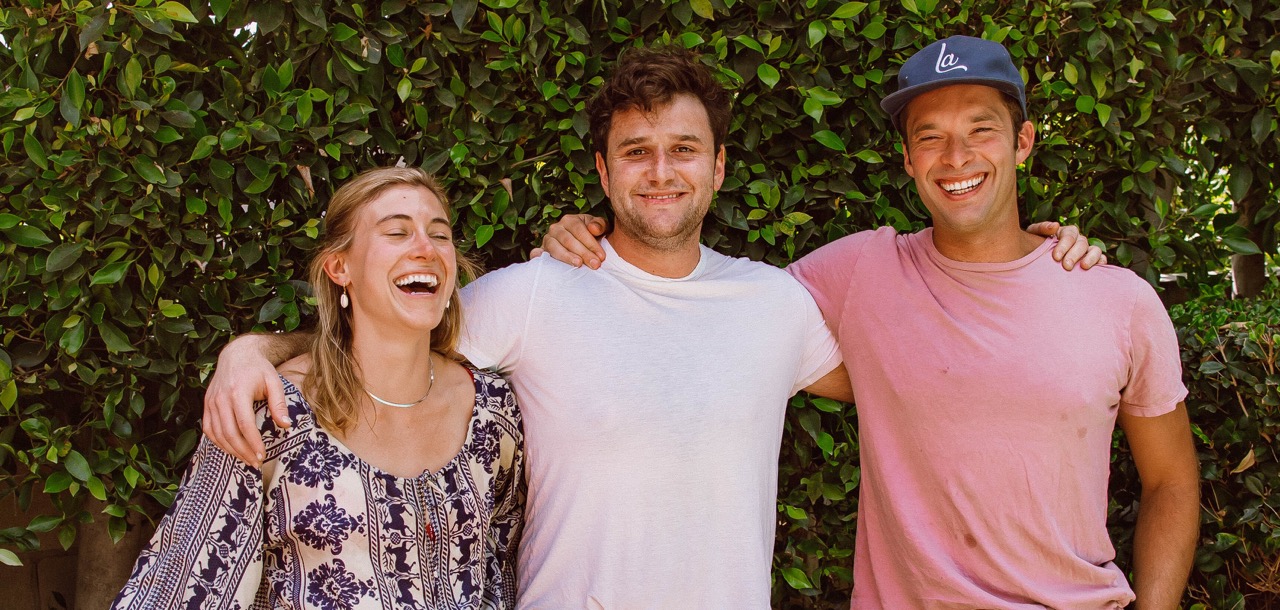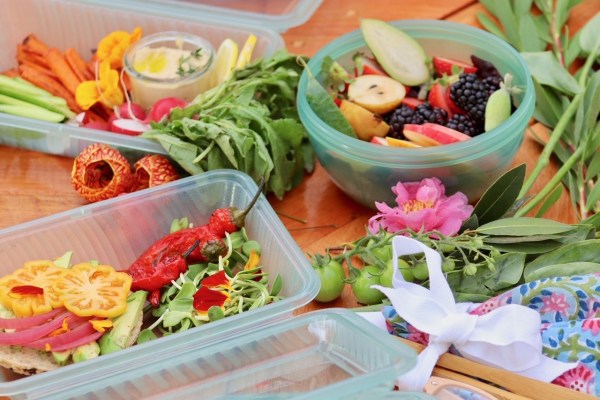As a person who cares about the environment, a steel vacuum mug for coffee and matching water bottle are companions that live with me when I’m out and about. When I order food for takeaway or delivery, I’m (almost always) left with a disposable packaging problem. Containers and packaging made up nearly one-third of U.S. municipal waste in 2018, while EU estimates from the same period put the number of takeaway containers being used a year at over 2 billion. Those figures appear to have gone up, not down, since the pandemic. What if there was a different way? You guessed it: This is exactly what Topanga is building toward with its recent $3.6 million funding round.
Topanga’s growth strategy is following the path laid by Facebook and Tinder and using college campuses as its platform for its reuse program, so that packaging can be tracked and returned using a QR code. There are even rewards for participation. It’s currently in use on six college campuses, and Topanga’s CEO, Page Schult, explained why they opted for the college model.

A QR code tracks the various containers through the circular system. Image Credits: Topanga
First, college campuses make it easy for people to return packaging. Second, it’s easier for companies to track their packaging when its use is limited to a restricted area. Third, it helps it to become habit-forming among a generation of people who will go out into the world and continue to expect this type of reuse operation.
Reusable containers are a thing — Algramo is solving this problem for the U.K. and Chile, Pyxo and Bibak are tackling the problem in France, and Dispatch Goods is going after the U.S. market. It’s a big enough problem that there’s space for a lot of different players for now, and testing multiple variations of the solution is a good thing, in my opinion. Partnering with a major food delivery service like Grubhub is likely a great way to find product/market fit.
“We’re ingraining a new behavior in a generation of young people who will carry it with them through life,” said Schult, highlighting the size of the market: “The college market in the U.S. alone is a $3.6 billion+ market opportunity. Factoring in campus-adjacent markets like corporate dining systems and universities in Canada, Australia and the EU, this market opportunity continues to grow.”
If Topanga does scale as Schult expects that it will across college campuses and into similar food provision markets, it estimates that it can eliminate 19% of global greenhouse gas emissions. Furthermore, it thinks it could save the economy $120 billion a year in plastic that is thrown away for no good reason, as well as eliminate 222 million tons of CO2 emissions.
For Schult, the rewards — not just for Topanga, but for society as a whole — are huge.
“At the end of the day, our mission is to build circular systems that drive measurable environmental and economic ROI without creating unnecessary waste,” said Schult. “If we’ve been successful 10 years from now, reusable packaging will have proven to be not just a sustainable choice, but a savvy business decision for companies and supply chains around the globe.”
From Topanga’s perspective, the time is right now to introduce these changes. For a start, technologically, the world is in a position that can support the easy tracking, return and reuse of packaging. But also, people want to be able to make simple changes that are better for the environment.

Page Schult, Max Olshansky and Adam Bailey, co-founders of Topanga. Image Credits: Topanga
“The ordering and fulfillment experience has evolved enormously in the past few years,” said Schult. “With mobile ordering platforms, mobile payments and new delivery services, these technological shifts have made our platform possible. We’re a part of this. For example, this fall, Topanga-tagged reusable containers will be delivered to students in zero-emission Starship robots at Colorado State University.”
As well as its funding round led by Amasia, with participation from Struck Capital and Wonder Ventures, Topanga is also directly embedded into Grubhub’s UI and has deals with the three largest food distributors in the U.S.: Aramark, Sodexo and Compass.
I’m surprised that Topanga has opted for reusable plastic packaging. After all, it’s still derived from petrochemicals, and there’s still a temptation to dispose of it as you would any other disposable plastic, either through habit or convenience. I wonder if tempered glass or even something as simple as metal would be better options; tiffins have been in use for a couple hundred years at least. All of ’em can be reused infinitely and people will be less likely to chuck them away. But, Topanga’s is a step in the right direction, and perfect shouldn’t be the enemy of good. Maybe that’s for another day.
